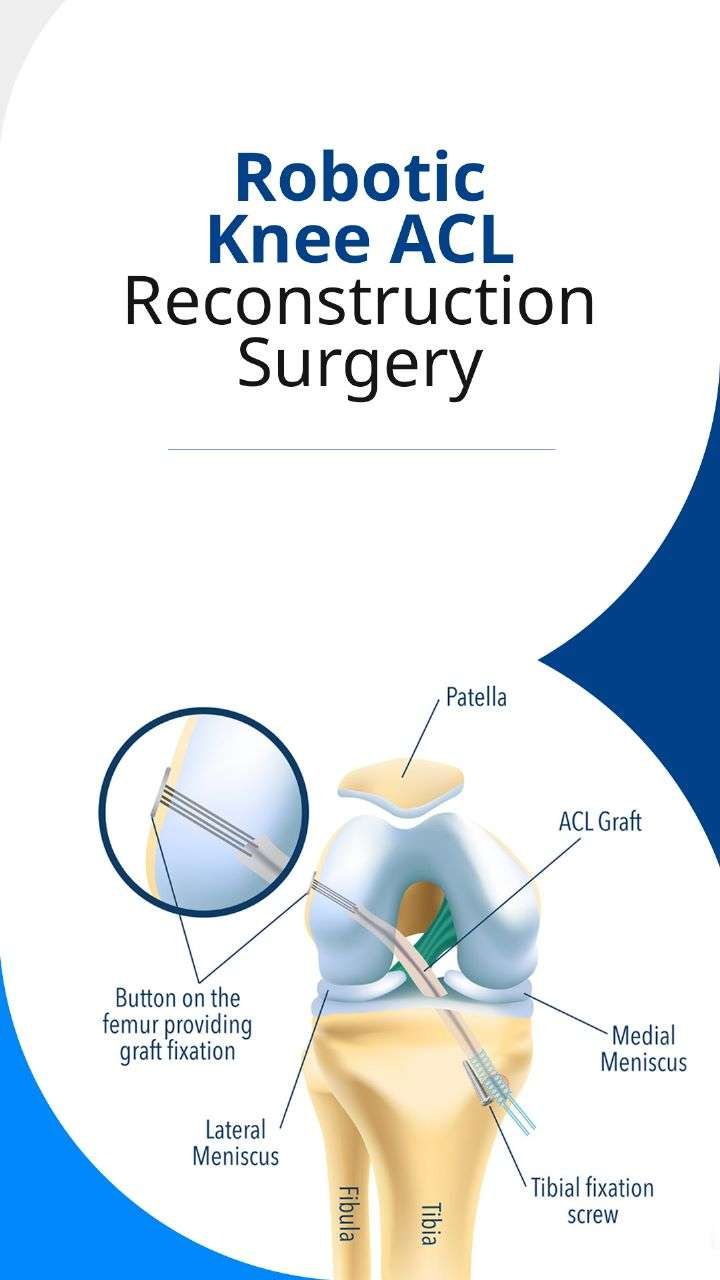
In the realm of advanced medical procedures, the spotlight shines on the revolutionary domain of Robotic Knee ACL Reconstruction surgery. This innovative approach aims to restore the integrity of the Anterior Cruciate Ligament (ACL), a pivotal ligament in the knee responsible for stabilizing the joint and preventing undesirable forward movement of the tibia relative to the femur.
The procedure entails meticulous precision as the damaged ACL is skillfully replaced with a graft sourced from various origins, including the patient’s own body (autograft) or a donor (allograft). Autograft options commonly involve the patellar tendon or hamstring tendons, while allograft alternatives encompass patellar tendon, hamstring tendons, or Achilles tendon. This procedure is predominantly conducted through arthroscopy, a minimally invasive technique characterized by small incisions around the knee joint. The utilization of an arthroscope, a miniature camera, enables a detailed assessment of the knee’s internal structures, fostering accelerated recovery and diminished complications.
Prior to surgery, an in-depth evaluation of the knee is performed, including diagnostic imaging like MRI, to gauge the extent of ACL damage and identify potential collateral impairment.
On the surgery day, patients are administered either general anesthesia or regional anesthesia (spinal or epidural) to ensure comfort and pain mitigation.
Through minimal incisions, the surgeon accesses the knee joint.
Utilizing an arthroscope introduced via an incision, the surgeon gains a comprehensive view of the knee’s internal structures, meticulously assessing ligaments, cartilage, and menisci.
In cases where ACL damage is extensive, surgical removal may be deemed necessary.
A graft, crucial for reconstructing the torn ACL, is harvested. This graft could originate from the patient’s body or a donor.
The forefront of this approach is exemplified by our Robotic Knee Arthroscopy Surgery at RKRS Center. Our esteemed orthopedic surgeon, adept in cutting-edge robotic techniques, ensures optimal outcomes by seamlessly integrating precision and advanced technology.
Post graft placement, incisions are securely closed using sutures or staples.
Following surgery, patients undergo structured rehabilitation under the guidance of physical therapists, crucial for restoring knee strength, flexibility, and stability.
This pioneering procedure is recommended for individuals experiencing persistent knee instability due to an ACL tear, recurrent episodes of knee giving way, and those seeking to resume physically demanding activities. It’s important to note that not all ACL tears necessitate surgery; the decision is made collaboratively with an orthopedic specialist, factoring in injury severity, activity level, and overall health.
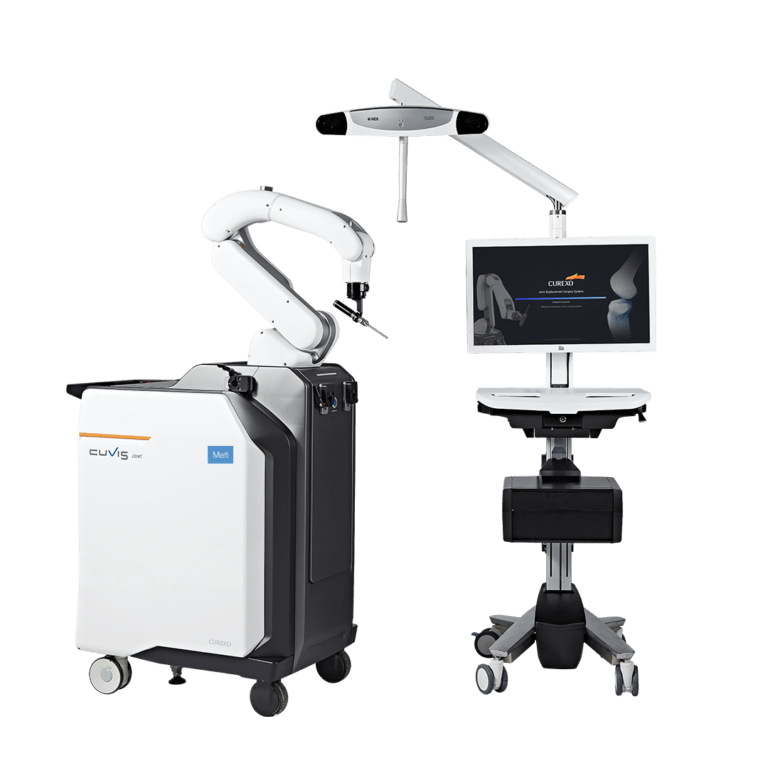
The surge in ACL reconstruction’s popularity, catalyzed by increased sports engagement, has propelled the pursuit of enhanced techniques. Traditional methods, while effective, can occasionally lead to post-surgery instability. Enter the realm of Robotic Assisted Knee ACL Reconstruction Surgery, poised to revolutionize outcomes through precision engineering.
Our journey towards a robotic graft tension setting device involved meticulous experimentation, quantifying two critical parameters: initial knee flexion angle and graft tension. Employing Magnetic Resonance Imaging (MRI) and a 3D positional measuring device, ligament length changes during knee flexion were measured non-invasively. Simultaneously, graft tension during flexion was tracked using a load cell. These insights illuminated the influence of knee flexion extent and bone tunnel location on graft tension, which, when understood, augments stability and long-term success.
Observing relaxation phenomena in pig’s ACL, linked to ligament tension setting velocity, paved the way for a graft tension setting device. The initial prototype showcases promising results, signaling its potential to reshape ACL reconstruction surgery.
In the realm of cutting-edge medical advancements, Dr. Bakul Arora stands as a beacon of expertise and experience in the realm of Robotic Knee Replacement surgery. With a remarkable track record and a wealth of knowledge in the field, Dr. Arora has consistently demonstrated unparalleled precision and skill in utilizing robotic technology to redefine knee replacement procedures.
With a wealth of successful cases to his credit, Dr. Arora’s proficiency in robotic-assisted knee replacement surgery is unrivaled. His commitment to staying at the forefront of medical innovation has led him to master the intricacies of robotic surgical techniques, ensuring that each patient benefits from the most advanced and precise treatment available.
Dr. Arora’s reputation extends beyond his exceptional surgical skills. He is known for his compassionate approach, taking the time to understand each patient’s unique needs and concerns. His dedication to providing comprehensive care and achieving optimal patient outcomes has solidified his position as a trusted authority in the realm of knee replacement.
In the hands of Dr. Bakul Arora, one of the Top Orthopedic in Thane , patients can confidently embark on their journey to enhanced mobility and a better quality of life through robotic knee replacement surgery in Thane . With his unparalleled experience and a passion for transformative medical solutions, Dr. Arora continues to shape the future of orthopedic care, one successful surgery at a time.
Robotic Knee ACL Reconstruction Surgery is an advanced surgical procedure that utilizes robotic-assisted technology to repair or replace a torn or damaged Anterior Cruciate Ligament (ACL) in the knee joint. The robotic system aids surgeons in achieving more precise and accurate placement of grafts, ultimately enhancing the overall outcome of the surgery.
Traditional ACL surgery involves manual techniques for drilling bone tunnels and graft placement. In contrast, Robotic Knee ACL Reconstruction Surgery incorporates a robotic-assisted system that allows for meticulous planning and execution of the procedure. This advanced technology provides greater surgical accuracy and may result in improved long-term stability and functional outcomes for patients.
The benefits of Robotic Knee ACL Reconstruction Surgery include:
The eligibility for Robotic Knee ACL Reconstruction Surgery depends on various factors, including the extent of the ACL injury, the patient’s activity level, overall health, and their commitment to post-operative rehabilitation. An orthopedic surgeon will conduct a thorough evaluation and discuss the most appropriate treatment plan for each individual.
The duration of Robotic Knee ACL Reconstruction Surgery may vary depending on the complexity of the case and the patient’s specific needs. On average, the procedure may take around 1 to 2 hours.
After the surgery, patients will undergo a structured rehabilitation program, which is essential for the successful recovery and long-term outcomes. Physical therapy and exercises will help regain knee strength, flexibility, and stability. The total recovery time may range from several months to a year, depending on individual healing and progress.
Yes, one of the primary goals of Robotic Knee ACL Reconstruction Surgery is to restore knee stability and function, enabling patients to return to their desired activities and sports with reduced risk of further knee injuries. However, the timing of returning to sports will be determined by the surgeon based on individual healing progress and rehabilitation success.
As with any surgical procedure, there are inherent risks involved. Potential risks include infection, bleeding, blood clots, nerve or blood vessel damage, and adverse reactions to anesthesia. However, the use of robotic-assisted technology aims to minimize these risks by improving surgical accuracy.
Patients may experience initial improvements in knee stability and function within a few weeks after the surgery. However, complete recovery and return to pre-injury levels of activity may take several months, and individual results may vary.
In most cases, Robotic Knee ACL Reconstruction Surgery is covered by insurance if it is deemed medically necessary. However, it is essential to check with your insurance provider to understand your specific coverage and any pre-authorization requirements.
We are really honored to receive this and we will continue to serve the society better than ever We aim to provide the world-class Knee/Hip Replacement Surgical (Minimal Invasive Surgery) treatment to every patient suffering from knee or hip pain and at the same time make their life pain-free and happy.
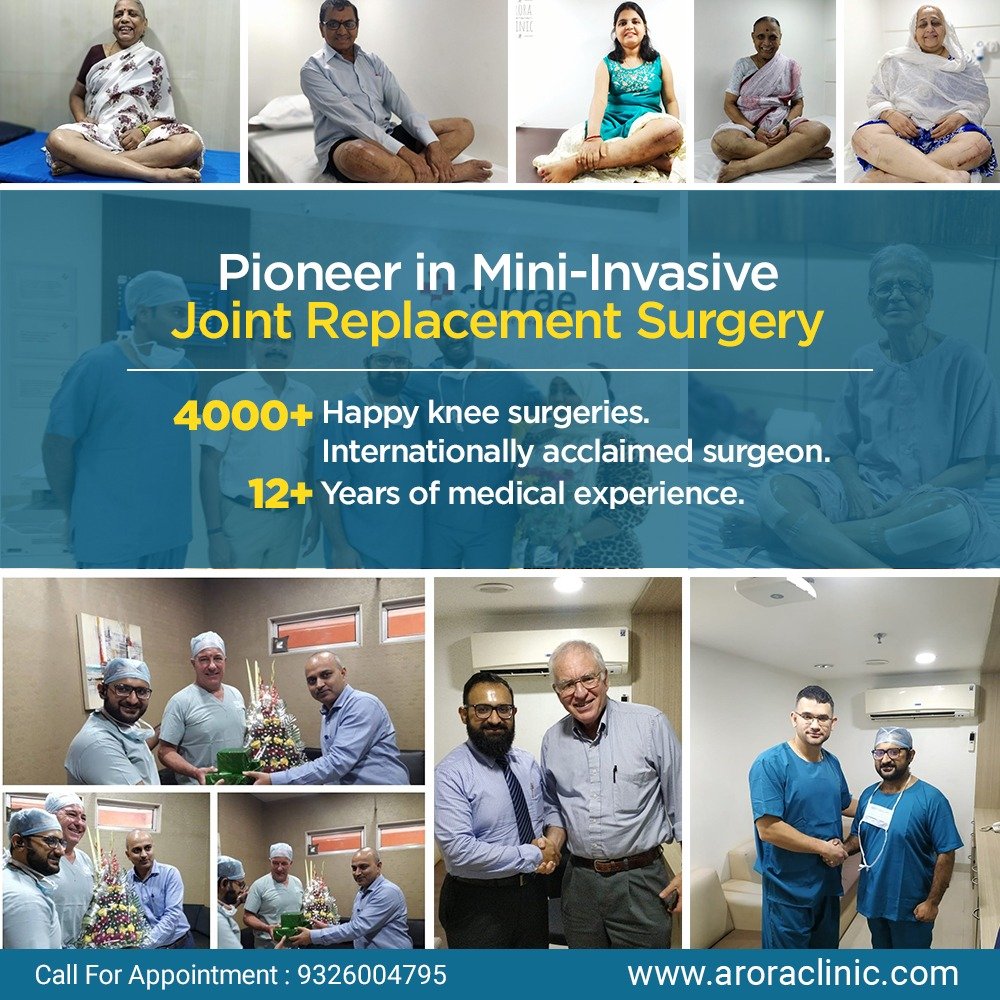
Dr. Bakul Arora’s Joint Replacement Clinic is also known as “Arora Clinic” which is located at Hiranandani Meadows in Thane, within a very convenient proximity to Mumbai. Arora Clinic dedicated clinic for Knee Replacement surgery and all kinds of Orthopaedic treatments and surgeries
The Arora Clinic is one of the most advanced Orthopaedic clinic in Thane region and dedicated to providing the best, personalised healthcare with a breadth of surgical and medical expertise. Arora Clinic offers the modern surgical treatments like “Minimally Invasive Knee Replacement Surgery” which is also called as “PAIN-LESS SURGERY” for any complex knee diseases.
Dr. Bakul Arora is a Consultant Joint Replacement & Orthopaedic Surgeon is one of the leading Knee Replacement Surgeon in Thane and Mumbai with over 4000+ successfully surgeries. Dr. Bakul Arora specialises in Mini-invasive techniques which offer multiple benefits to patients. He does the surgery using Subvastus approach for Knee Replacement surgery and Direct Anterior Approach for Hip replacement Surgery . This new techniques has many advantages for patients like its pain-less , stich-less surgery, patients walks on the same day after surgery, no blood loss, faster recovery etc.


Knee replacement is required for advanced arthritis of the knee joint, producing painful limitation of movements and restriction in activities of daily living. Knee replacement as a solution should be offered when all non–surgical methods of treatment failed and painkiller medicines and injections also failed to reduce the Knee and hip pains.
Knee replacement can be total or unicondylar, depending on the number of compartments involved. Among the total knee replacement, there are two popular designs- Cruciate Retaining, and Posterior Stabilized. The decision for the design is best taken by the operating orthopedic surgeon based on the integrity of ligaments. Patella resurfacing as a routine is a debatable subject.
Yes, most knee replacement surgeries are minimally invasive, with numerous benefits to the patient, including smaller incisions, less tissue trauma, bleeding and post–operative pain, shorter hospital stays, faster recovery, and earlier return to work and activities — in weeks rather than months. Advantages of Minimally Invasive Knee Replacement Surgery. Patients Start walking in few hours of surgery. Patients start climbing the staircase from second day of his surgery. Patients Discharge with in 3 Days from the Hospital after surgery. No blood loss during the surgery, no blood Transfusion required. Less Physiotherapy.( No Physiotherapist required for home) Less Antibiotic. Stitchless Surgery. Recovery time is just two – three week.
Bilateral knee replacement in the same sitting, can be performed if both the knee joints are damaged to the same extent, however, the medical condition of the patient, and bone quality must be kept in consideration.
Surgery through Minimally Invasive technique patients start walking on the same day and staircase climbing starts from the second day of surgery. Patients can resume his work after 3 – 4 week.
The most significant risks include Infection, Deep vein thrombosis,and Aseptic loosening of implants. The risks correlate with the co-morbid medical condition, and must be discussed with the patient before surgery.
Patients normally require hospitalization for 3-4 days in single knee replacement, and up to 5-6 days in both knee replacement surgery
A single knee replacement takes approximately 90 min- 2 hours. Both knee replacement surgery takes approx 2-3 hours.
Years ago, knee replacement surgery was reserved for elderly patients due to a high complication rate and lack of implant durability. Modern techniques have allowed orthopaedic surgeons to base surgical decisions on a patient’s pain and disability, and not necessarily chronological age. Most patients who undergo knee replacement are between the ages of 50 and 80, but surgeons evaluate patients individually and primarily on their physiologic age and demands.
Patients can resume his/her light work after discharge from the hospital, no need for rest.
Patients are given epidural anesthesia for surgery, and post op pain relief. They are expected to follow instruction from physiotherapist regarding muscle training.
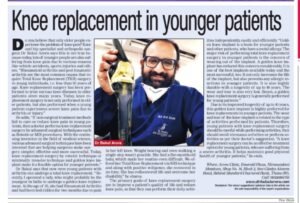
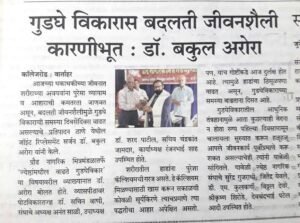
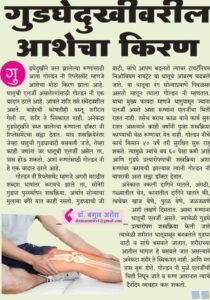

⇒ Wockhardt Hospital Mumbai Central, Mira road & Vashi
⇒ Apollo Spectra Hospital, Tardeo and Chembur
⇒ Cloud 9 Hospital, Malad
⇒ Criticare Hospital, Andheri
⇒ Arora Clinic, Hiranandani Meadows
⇒ Bethany Hospital, Vasant Vihar
⇒ Currae Hospital, Kapurbawdi
⇒ Horizon Hospital, Ghodbunder
⇒ Infinity Hospital, Majiwada
⇒ Lakecity Hospital, Khopat
⇒ Oscar Hospital, Majiwada
⇒ Drone Hospital, Bhiwandi
WhatsApp us